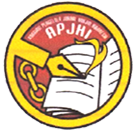The Construction of Social Work Criminal Sanctions in Indonesian Criminal Law
Formulation and Orientation in Indonesian Criminal Law
DOI:
https://doi.org/10.29303/ulrev.v7i2.299Keywords:
Criminal Law, Social Work, Criminal Sanctions, New Criminal CodeAbstract
Social work criminal sanctions are one of the types of sanctions formulated in the New Criminal Code (NCC). Social work criminal sanctions are oriented towards providing a deterrent effect and educating convicts so that they do not repeat the crimes they have committed. This study focuses on the analysis of the construction of social work criminal sanctions in Indonesian criminal law. This type of research is normative legal research that emphasizes conceptual and statutory approaches. The results of the study show that the concept of the formulation of social work criminal sanctions in the NCC is actually based on the theory of punishment which is retributive in nature, namely it aims to provide a deterrent effect for perpetrators of criminal acts. Social work criminal sanctions in the NCC are also an implementation of an integrative punishment system that emphasizes the human dimension and is oriented towards making convicts part of society. The orientation of social work criminal sanctions in the NCC should be carried out while guaranteeing convicts' rights and community participation to oversee the implementation of social work criminal sanctions. Suggestions from this study are the need for guidelines and technical guidelines for the implementation of social work criminal sanctions so that they can guide law enforcement officials in carrying out social work criminal sanctions.
References
Diantha, I Made Pasek. Metodologi Penelitian Hukum Normatif. Cetakan ke. Jakarta: Prenadamedia Group, 2017.
Disantara, Fradhana Putra, Septina Andriani Naftali, R. Yuri Andina Putra, Dwi Irmayati, and Galih Rahmawati. “Enigma Pemberantasan Korupsi Di Masa Pandemi COVID-19.†JURNAL USM LAW REVIEW 5, no. 1 (2022): 61–79. https://doi.org/http://dx.doi.org/10.26623/julr.v5i1.4135.
Effendi, Erdianto. “Penjatuhan Pidana Ganti Rugi Sebagai Pidana Pokok Dalam Kejahatan Terhadap Harta Benda.†Jurnal Usm Law Review 5, no. 2 (2022): 618. https://doi.org/10.26623/julr.v5i2.5355.
Emaliawati, Emaliawati, Bonarsius Saragih, and Aji Mulyana. “Effectiveness of Social Work Sanction as a Substitute for Imprisonment in The Perspective of Sentencing Purposes.†Jurnal Penelitian Hukum De Jure 22, no. 3 (2022): 325. https://doi.org/10.30641/dejure.2022.v22.325-336.
Fahmi, Fahmi, Rai Iqsandri, and Rizana Rizana. “The Use Of The Concept Of Restorative Justice Against The Criminal Act Of Murse In The Policepekanbaru City Resort.†Jurnal Gagasan Hukum 4, no. 01 (2022): 42–49. https://doi.org/10.31849/jgh.v4i01.10165.
Faisal, Faisal, Derita Prapti Rahayu, and Yokotani Yokotani. “Criminal Sanctions’ Reformulation in the Reclamation of the Mining Community.†Fiat Justisia: Jurnal Ilmu Hukum 16, no. 1 (2022): 11–30. https://doi.org/10.25041/fiatjustisia.v16no1.2222.
Galih Puji Mulyono, Latifah Fakultas. “Pemidanaan Kerja Sosial Dalam Perspektif Pembaharuan Hukum Lalu Lintas Di Indonesia.†Yurispruden 6, no. 1 (2023): 52–66. https://doi.org/10.33474/yur.v6i1.16915.
Ginting, Jamin. “Sanksi Kerja Sosial Sebagai Alternatif Bentuk Pemidanaan Dalam Sistem Hukum Di Indonesia.†Law Review 19, no. 3 (2020): 246. https://doi.org/10.19166/lr.v19i3.2098.
Hajairin, Hajairin, Syamsuddin Syamsuddin, Kasmar Kasmar, and Gufran Sanusi. “Kebijakan Pidana Pengawasan Dalam Pembaharuan Hukum Pidana Indonesia.†Iblam Law Review 2, no. 2 (2022): 165–74. https://doi.org/10.52249/ilr.v2i2.81.
Idham, Idham, and Lenny Nadriana. “Diskriptif Sistem Pembinaan Narapidana Di Lembaga Pemasyarakatan Dalam Tindak Pidana Narkotika (Studi Di Lembaga Pemasyarakatan Narkotika Kelas Ii A Bandar Lampung).†Audi Et AP : Jurnal Penelitian Hukum 1, no. 2 (2022): 108–16. https://doi.org/10.24967/jaeap.v1i02.1672.
Ilham Nur Pratama, Nurul Restu Azyanti. “Application of Restorative Justice in the Settlement Of Corruption Crimes.†Corruptio 2, no. 2 (2022): 139. https://doi.org/10.29240/negrei.v2i2.5854.
Isnawati, Muridah. “The Urgence of Indonesian Penal Code (KUHP) Reform to Realize Humanistic-Based Imprisonment.†Borobudur Law Review 3, no. 1 (2021): 73–83.
Kurnianingsih, Marisa, and Wiranto Tri Setiawan. “Menakar Pidana Kerja Sosial Sebagai Paradigma Baru Konsep Pemidanaan Perkara Korupsi Berbasis Determinisme Cultural.†Justisi 9, no. 2 (2023): 116–32.
Maerani, Ira Alia, and Siti Rodhiyah Dwi Istinah. “The Formulation of the Idea of Forgiveness in Indonesian Criminal Law Policy (A Study Based on Restorative Justice & Pancasila Values).†Jurnal Daulat Hukum 5, no. 4 (2022): 300–317.
Muladi, Barda Nawai Arief. Teori-Teori Dan Kebijakan Pidana. 2nd ed. Bandung: Alumni, 1998.
Rahawarin, Ahmad Rifai. “Sanksi Pidana Suatu Gagasan Tiga Sistem Sanksi (Trisisa) Hukum Pidana (Kajian Pidana Utama Khusus Pidana Penjara).†Legal Pluralism 10, no. 1 (2020): 4.
Rochaeti, Nur, Mujiono Hafidh, Umi Rozah, and Jihyun Park. “A Restorative Justice System in Indonesia : A Close View from the Indigenous Peoples ’ Practices.†Sriwijaya Law Review 7, no. 1 (2023): 87–104. https://doi.org/10.28946/slrev.Vol7.Iss1.1919.pp87-104.
Safitri, Myrna A., Ricca Anggraeni, Adnan Hamid, and Kunthi Tridewiyanti. “Urgensi Nilai-Nilai Pancasila Dalam Pengaturan Tentang Pemasyarakatan.†Pancasila: Jurnal Keindonesiaan 01, no. 02 (2021): 247–65. https://doi.org/10.52738/pjk.v1i2.19.
Samsu, S., and H. M. Yasin. “Optimalisasi Pelaksanaan Pembinaan Residivis Narapidana Narkotika Pada Lembaga Pemasyarakatan.†Al-Ishlah: Jurnal Ilmiah Hukum 24, no. 1 (2021): 18–38. https://doi.org/10.56087/aijih.v24i1.60.
Silaswaty Faried, Femmy, Hadi Mahmud, and Suparwi Suparwi. “Mainstreaming Restorative Justice in Termination of Prosecution in Indonesia.†Journal of Human Rights, Culture and Legal System 2, no. 1 (2022): 66–77. https://doi.org/10.53955/jhcls.v2i1.31.
Slat, Teafani Kaunang. “Sanksi Pidana Kerja Sosial Terhadap Tindak Pidana Ringan Sebagai Upaya Pembaharuan Hukum Pidana Nasional.†Jurnal Ilmiah Pendidikan Pancasila Dan Kewarganegaraan 4, no. 2 (2020): 352. https://doi.org/10.17977/um019v4i2p352-360.
Ticoalu, Luna Dezeana, Relys Sandi Ariani, and Herlin Sri Wahyuni. “Konsep Kerja Sosial Sebagai Alternatif Pidana Pokok Berperspektif Social Defence Dan Budaya Moral Dalam Upaya Penegakan Hukum Tindak Pidana Korupsi Di Indonesia.†Jurnal Hukum Lex Generalis 2, no. 7 (2021): 555–67. https://doi.org/10.56370/jhlg.v2i7.88.
Vincentius Patria Setyawan, Itok Dwi Kurniawan. “The Urgence Of Rechterlijk Pardon Regulation In Criminal Law Renewal.†Inovasi Penelitian 2, no. 2 (2021): 124–34. https://doi.org/10.31857/s013116462104007x.
Widyastuti, Bheti. “Kajian Pidana Kerja Sosial Ditinjau Dari Segi Sosiologi Hukum.†Pascasarjana Hukum UNS 8, no. 2 (2020): 56–63.
Yustia, Rd Dewi Asri. “Implementasi Model Pidana Kerja Sosial Berbasis Nilai-Nilai Hukum Adat Sunda.†Litigasi 22, no. 2 (2021): 272–86.
Zuraidah. “Pidana Kerja Sosial Sebagai Pembaharuan Hukum Pidana Dalam Perkara Tindak Pidana Korupsi.†Presumption of Law 4, no. 1 (2022): 1–18.
Downloads
Published
How to Cite
Issue
Section
License
Copyright (c) 2023 Adwi Mulyana Hadi, Yaris Adhial Fajrin, Ade Sathya Sanathana Ishwara

This work is licensed under a Creative Commons Attribution-NonCommercial 4.0 International License.
Copyright holder by Author














